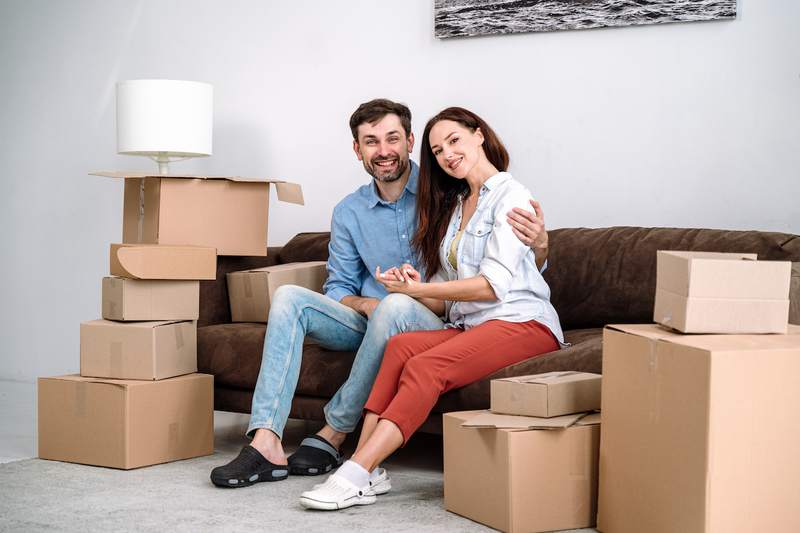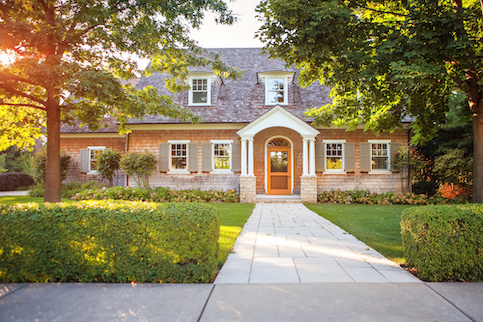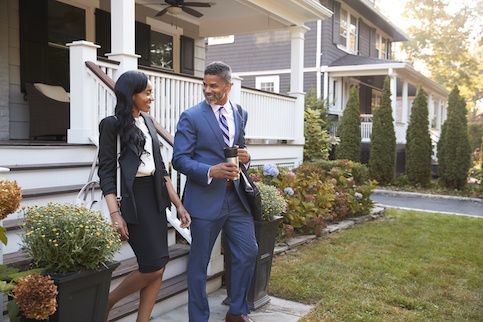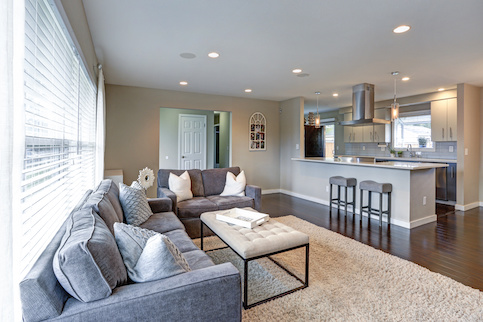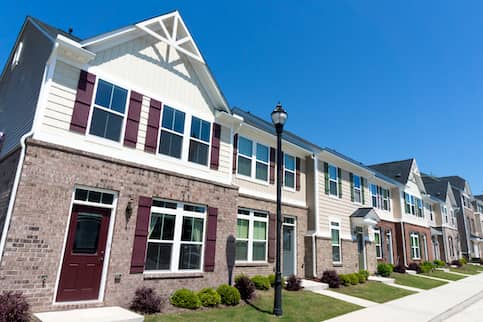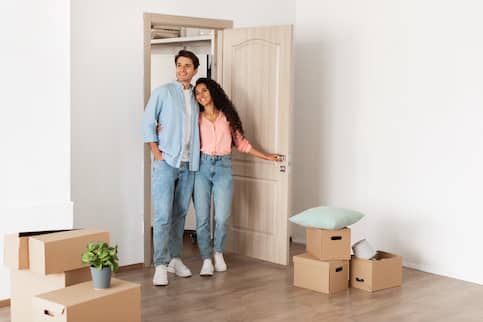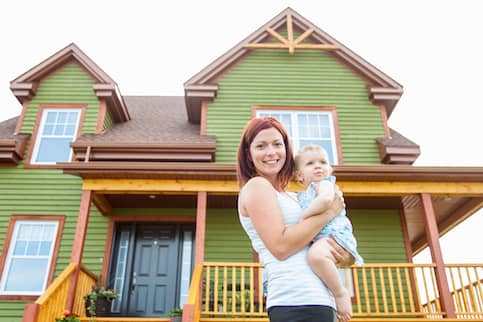Is A Starter Home Right For You?
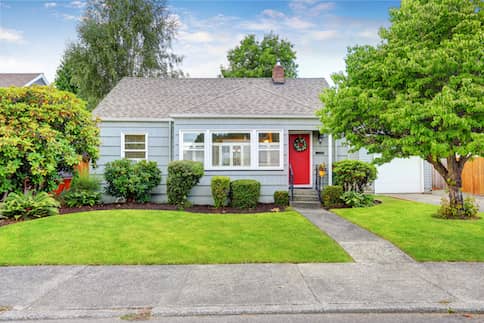
In the past, before committing to a “forever home,” many first-time home buyers may have been encouraged to buy a starter home. The idea would be that they can break away from renting by buying something smaller and more affordable. After owning the home for a few years, they could then use the starter home to build equity and improve their credit before committing to a larger permanent residence.
But is a starter home the right type of home for you? Find out more about what defines a starter home, the questions you should ask before buying one and the best way to finance it.
What Is A Starter Home?
What constitutes a starter home can vary greatly depending on where you plan to live. In some areas it may be possible to buy a detached home with a small plot of land as a starter home. In other areas a starter home may be attached property like a condo or a townhouse in a larger housing complex.
That said, starter homes tend to have a few things in common:
- It’s typically first purchased by a single person or small families.
- The owner plans to sell after 2 – 10 years.
- The home has 2 or fewer bedrooms.
- There are fewer amenities such as a garage or remodeled bathrooms.
- There is no land or the home is on a smaller plot of land compared to other homes in the area.
Starter Home Vs. Forever Homes
While you may only plan to live in a starter home for a few years, a forever home can be defined as a house that you plan to live in for 10 years or more. The goal is to own the home long enough that you can build equity for the future with the intent to:
- Own a home without needing to make a mortgage payment.
- Use the profit from the future sale of the home to finance your retirement.
- Have the home serve as a legacy investment that can be given to family members or others after you die.
See What You Qualify For
Home Purchase
Home Refinance
Tap Into Equity
Questions To Ask Before Buying A Starter Home
While a starter home may make sense in theory, there are some key questions that you should ask yourself before you decide to buy.
When Should I Buy A Starter Home?
As people typically wait longer before starting a family or setting down roots, starter home buyers tend to be in their early- to mid-30s. But ultimately, the decision should be based on an individual’s or couple’s financial situation and their ability to commit to an area for a certain amount of time.
When buying a starter home, you’ll want to be honest with yourself about your ability to commit for the long term. If you feel that you’ll be able to commit to an area for at least 2 years, a starter home may make sense. However, if you anticipate potentially needing to move for work, family or other reasons, it may not be the right choice for you.
How Long Do I Need To Live In My Starter Home?
While there’s no minimum period of time that you need to live in a starter home, there are financial reasons why it makes sense to live in your home for at least 2 years.
One big reason is capital gains. If you live in your home for more than 2 years, you may be eligible for a capital gains tax exemption of $250,000 for single-filers and $500,000 for couples filing jointly. However, if you sell your home before then, you may wind up paying a lot more in taxes the year you sell.
How Much Should A Starter Home Cost?
The price of a starter home will vary depending on your income and where you plan to live. Ideally, a starter home shouldn’t require you to pay more than 28% of your monthly income toward your mortgage payment including principal, interest, taxes and insurance (PITI). That way, you’re able to pay your bills, avoid debt and save money for the future.
You can also build a stronger financial profile, so you’ll have the savings and credit score you need if you’re planning to buy a forever home in the future.
Will The Starter Home Provide A Return On Investment?
While a starter home may cost less to buy, you’ll also want to consider whether it will gain enough value during the time you plan to live in it. While home values are subject to forces beyond our control, there are some questions you should ask before you buy a starter home:
- Has the home, or other homes in the area, increased in value over time?
- Is the home “move-in ready” or will you need to invest time and money to make it livable?
- If your interest rate is high, will you be able to pay enough toward the principal to build equity?
If the starter home isn’t likely to appreciate in value while you live in it, it may not provide the best return on your investment for when you choose to move into your forever home. In fact, if home prices drop while you’re living in your starter home, you run the risk of being underwater on your mortgage.
What Kind Of Mortgage Is Best For A Starter Home?
When buying a forever home, you’re more likely to want to use a 30-year or 15-year fixed-rate mortgage because it allows you to maintain a predictable payment over the long term. However, if you’re planning to buy a starter home, there may be other mortgage options that better align with your home buying goals.
ARM Loans
An adjustable-rate mortgage (ARM) may be a good option for home buyers who are looking to purchase a starter home because they offer a lower introductory rate for a period of 3 – 10 years. This can allow buyers to lock in a good rate while they plan to stay in the home. After that, the rate will adjust based on the terms of the loan and the economy. If you know that you’re planning to sell the home after a few years, an ARM loan can help you get a lower interest rate.
FHA Loans
If you’re a first-time home buyer or a home buyer with a lower credit score, a Federal Housing Administration (FHA) loan may be a good way to purchase a starter home. FHA loans are government-backed, which allow you to qualify with a lower credit score and pay less upfront. However, there are additional costs such as mortgage insurance premiums (MIP) that can add to the cost of your mortgage over time.
Conventional Mortgages
If you’re looking for a starter home, there are conventional loan programs that allow buyers to purchase a home with as little as 3% down. These include:
For homebuyers looking for an affordable first home, there are also options like the Fannie Mae HomePath program that makes it easier for home buyers to get a mortgage on a previously foreclosed home.
Does A Starter Home Make Sense Today?
In the past few years, home values have increased significantly. According to data from the Federal Reserve Bank of St. Louis, the median sales price for a home in the U.S. has jumped from $222,900 in 2010, to $329,00 in 2020, reaching a high of $479,500 in 2022.
In other words, the price of a home more than doubled in just 12 years. While prices have started to go down in 2023, the current price is still above $400,000.
This price increase may make a starter home harder to afford, especially for first-time and lower income home buyers. That means that many of today’s starter homes may wind up becoming forever homes instead.
Find A Mortgage Today and Lock In Your Rate!
Get matched with a lender that will work for your financial situation.
The Bottom Line
There are a lot of good reasons to consider buying a starter home before you commit to something longer term. The key is to make sure you’re buying a home that you can enjoy for a few years and gain a modest profit. Otherwise, your starter home could become more of a hindrance than a help.
Looking to finance your starter home? We can help. Start a loan application today to see what loan options are available and which is right for you.

